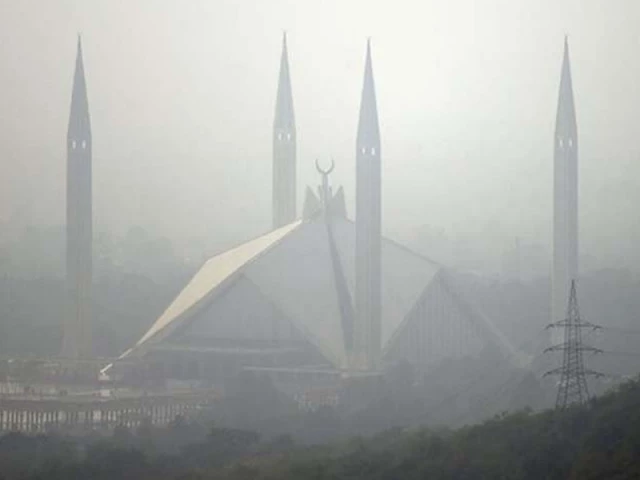After dengue, Pindi shifts focus to smog
City plans duck-based larvae control after zero dengue fatalities this year

With the arrival of cold winter nights, the anti-dengue campaign in Rawalpindi has officially concluded, paving the way for the commencement of the anti-smog season. All dengue coordination meetings have likewise been brought to a close.
Authorities have also decided to introduce the use of ducks next year as a natural method to curb dengue larvae ahead of the breeding season.
Fortunately, no fatalities from dengue were reported this year. However, with the campaign now concluded, preparations are underway to terminate the services of 2,700 daily-wage workers engaged in anti-dengue operations — a move expected to be implemented shortly. Workers who had previously received show-cause notices will also face salary deductions. Hospitals have now dismantled their dedicated dengue wards. Over the past 24 hours, only 13 dengue patients were reported, all of whom were treated and discharged. The district administration has also ceased holding dengue review meetings.
Throughout the year, 1,361 anti-dengue teams remained operational. Of the 21,835 patients examined, 1,436 were confirmed cases. Inspection teams checked 6,333,584 households, detecting larvae in 207,006 of them. In designated hotspot zones, 1,840,400 sites were surveyed, and larvae were discovered at 28,520 locations.
To date, 4,781 cases have been registered, 1,927 properties sealed, and 3,700 challans issued. Cumulative fines totalling Rs11.395 million have been imposed for dengue-related violations.
The Deputy Commissioner has instructed the Health Department to draft a new anti-dengue micro plan for 2026, to be presented in the first week of February.
Under this revised strategy, authorities will carry out early spraying in graveyards, apply larvicidal chemicals to stagnant water, and encourage the rearing of ducks in rural and peri-urban areas to help naturally eliminate dengue larvae.
Since ducks feed on mosquito larvae, their introduction to stagnant water bodies is expected to significantly curb dengue breeding before larvae can mature.
The district administration will also promote duck farming among residents and local councils in densely populated and high-risk areas as part of an eco-friendly dengue control initiative.
Breathing problems
Meanwhile, medical experts have expressed serious concern over the increasing number of breathing problems caused by smog and dust allergies, urging the public to raised awareness for taking timely precautionary measures to protect their health.
Talking to a local news channel, Dr Muhammad Waqas Khan, a medical officer, expressed deep concern over the rising number of breathing problems reported across the city, adding, the recent increase in smog and dust pollution has triggered a surge in respiratory issues, particularly among children the elderly, and those with pre-existing lung conditions.





















COMMENTS
Comments are moderated and generally will be posted if they are on-topic and not abusive.
For more information, please see our Comments FAQ